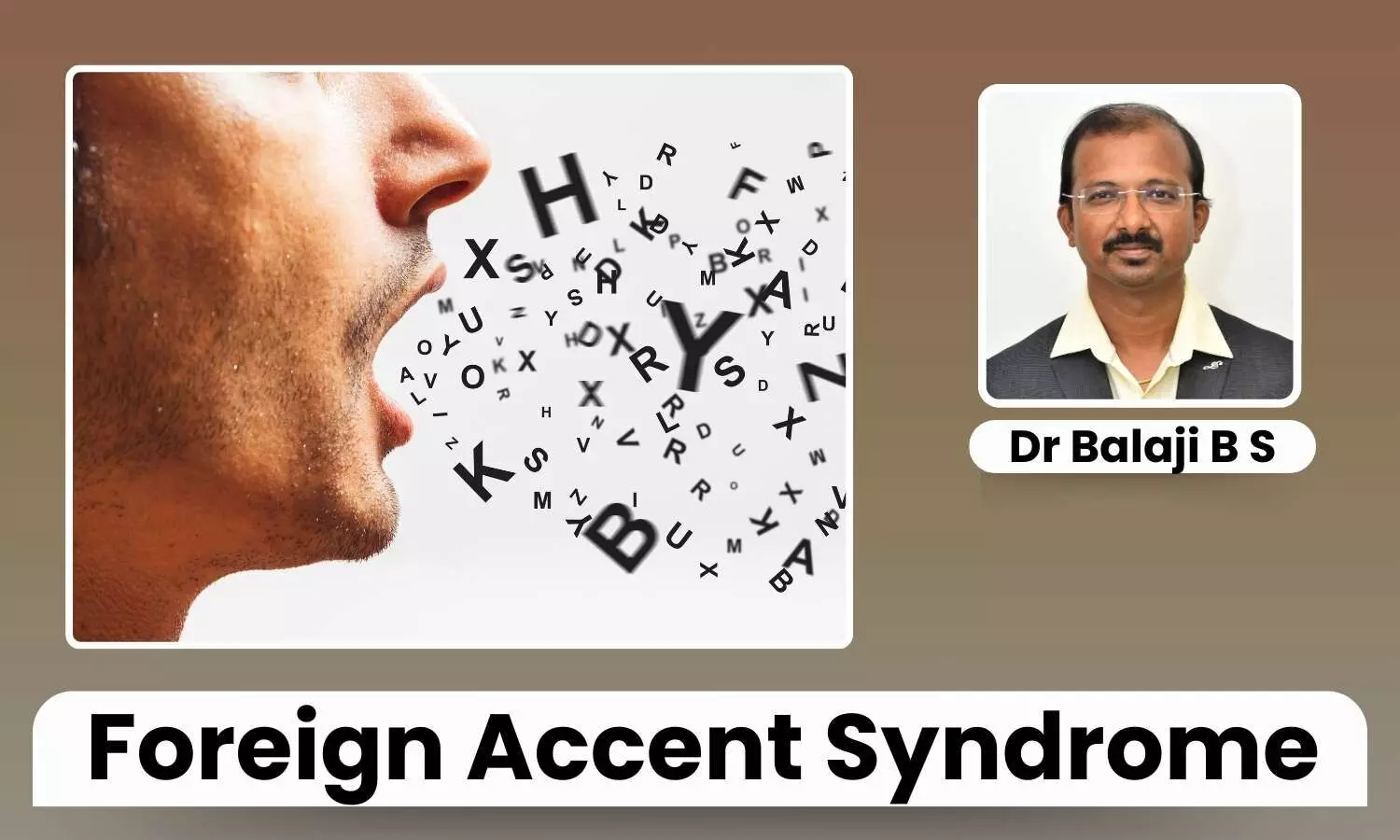Foreign Accent Syndrome: 6 Major Causes and Symptoms - Dr Balaji B S

Foreign Accent Syndrome or FAS refers to a rare and fascinating neurological condition in which a person’s speech unexpectedly switches to a different accent without any apparent reason, while having no history or family antecedent from the place of origin of the accent.
For e.g., an Indian suddenly speaking in a Spanish accent. While it may sound intriguing, FAS can be disorienting and deeply impactful for those affected. Therefore, identifying the causes and symptoms through professional diagnosis is crucial to ensure appropriate medical treatment
Below listed are six key causes and symptoms of Foreign Accent Syndrome.
1. Stroke
A stroke can cause damage to certain parts of the brain, such as areas responsible for speech production and language processing.
Damage to these areas can affect a person’s pronunciation, rhythm, and intonation, making it sound as though the person has an accent from another country.
Slurred or slowed speech, difficulty with the formation of words, and even weakness on one side of the body or drooping eyelids are common additional symptoms.
2. Traumatic Brain Injury
A severe head injury may cause disturbance in the neural pathways in the brain which coordinates speech and language. It may be a sudden alteration in word pronunciation, sometimes even changing the rhythm, stress, and tone.
Other symptoms may include continuous failure in articulation of sentences, cognitive dysfunction, and even memory loss.
3. Neurological Disorders
Certain neurological disorders can affect parts of the brain controlling movement and speech. It may cause one’s speech to become slow, uneven, or carry an unusual intonation.
This may also be accompanied by muscle weakness, tremors, or seizures, indicating the underlying neurological complexity.
4. Migraines
In some rare cases, severe migraines can also cause brief episodes of FAS. It happens because of the short periods of interference in the activity of the brain caused by a migraine attack.
In such cases, especially if the migraine affects parts of the brain associated with language, there may be symptoms like changes in speech rhythm, tone, and clarity besides the general symptoms like intense headache, sensitivity to light, and nausea.
5. Psychological Factors
Some people with mental illnesses, especially serious psychological trauma or dissociative disorders, can also experience Foreign Accent Syndrome.
In such cases, changes in speech are psychogenic, resulting from emotional distress or mental illness rather than physical damage to the brain.
Common symptoms include abrupt changes in speech, usually accompanied by other signs of anxiety, depression, or even episodes of dissociation.
6. Developmental or Unknown Causes
In rare cases, FAS may begin during childhood or occur without any identifiable cause. Developmental speech disorders can also be the causative factor.
Symptoms generally include regular changes in intonation, fluency problems, and inability to communicate which, if untreated, could continue into adulthood.
Foreign Accent Syndrome is one of the most striking examples of the intricate complexity and interconnection that characterizes the human brain. If you or anyone you know suddenly starts to speak in a foreign accent, it is essential to immediately seek medical attention.
The earlier the cause is detected and treated, the easier it will be to cope with the symptoms and regain the quality of life lost. Understanding and raising awareness about this condition can help reduce the stigma and confusion experienced by those who have it.


